How to wake up your child
How Wake Up a Kid the Right Way (Without a Children’s Alarm Clock)
Parenting
Parents don't need a special wake-up alarm to make kids bright-eyed and bushy-tailed — but they may have to become morning people themselves.
by Patrick A. Coleman
Updated:
Originally Published:
SrdjanPav/E+/Getty Images
After figuring out how to put a baby to sleep, which is by no means a simple process, a parent’s next task is to devise a strategy for waking kids up. Make no mistake, mornings are easier than evenings, but that doesn’t mean that a gentle shake is gonna get it done. The way a toddler wakes up can weigh heavily on their willingness to tackle the day with a positive attitude, which in turn influences the way they learn and develop. It’s actually an important process to really consider. Ditching the alarm clock for a song and a smile goes a long way.
Wake Up a Toddler With a Good Attitude
First, the good (and frustrating) news: A well-rested parent is the best possible alarm. That said, a well-rested parent is also an oxymoron so it’s fine to fake it. Just put on a cheery voice and say good morning. That simple gesture can make a big difference — and yield dividends for the rest of the day.
“I always tell parents that might mean waking up 20 minutes earlier to make sure that you are ready to provide whatever support your child needs,” explains licensed psychologist Dr. Roseanne Lesack, director of the child psychology clinic at Nova Southeastern University. That might seem like a big ask, particularly if kids are still getting up at night, but it’s worth it for a smooth, stress-free transition into the day. Twenty minutes might mean the difference between a groggy shouting match and the second cup of coffee that puts a parent right.
To make the morning even better, Lesack suggests parents consider working ahead. “Think of whatever you can get prepared ahead of time,” she says. “Whatever you can get done the night before, get it done.” Those tasks might include asking a kid to pick out their clothes and decide what they want to eat for breakfast. It might even include packing a lunch and getting a backpack ready during the school year. Any little bit helps.
“Think of whatever you can get prepared ahead of time,” she says. “Whatever you can get done the night before, get it done.” Those tasks might include asking a kid to pick out their clothes and decide what they want to eat for breakfast. It might even include packing a lunch and getting a backpack ready during the school year. Any little bit helps.
“When they’re in a grumpy mood it’s really hard to make decisions,” Lesack explains. “So when those decisions about what they want to wear and what’s for breakfast have already been made, there’s no conversations about that.”
Tips For Helping a Toddler Wake Up Easily
- Wake up early so that you’re ready to wake your kid up with a good attitude.
- Prepare the night before to take tricky decisions and time-consuming tasks off your plate.
- Try to use the gradual natural light while waking a kid.
- Sing a song or play gentle music to help improve mood.
- Have realistic expectations for how long it will take a child to wake up.

Lesak also recommends parents have realistic expectations about how much time a child needs to get going. A hurried kid will be a dazed and tender kid. Parents should make sure that there is enough time to get everything done while allowing for a gentle entry into the day. There should be time enough to let natural light in slowly. A minute or two should be set aside for a wake-up song or some music and perhaps even a cuddle.
All of this can be woven into a morning schedule. It’s all dependent on what the kid needs, according to Lesack. “Know your child and stick with the schedule as best you can,” she says. But not so much that the routine is easily derailed. “We need to flexibly structured because every morning is going to throw something new at you.”
But in the end, Lesack is unequivocal about the fact that a parents attitude about the morning will be reflected in their child. If a parent wakes up frazzled, behind and angry, then they shouldn’t expect any better from their kid.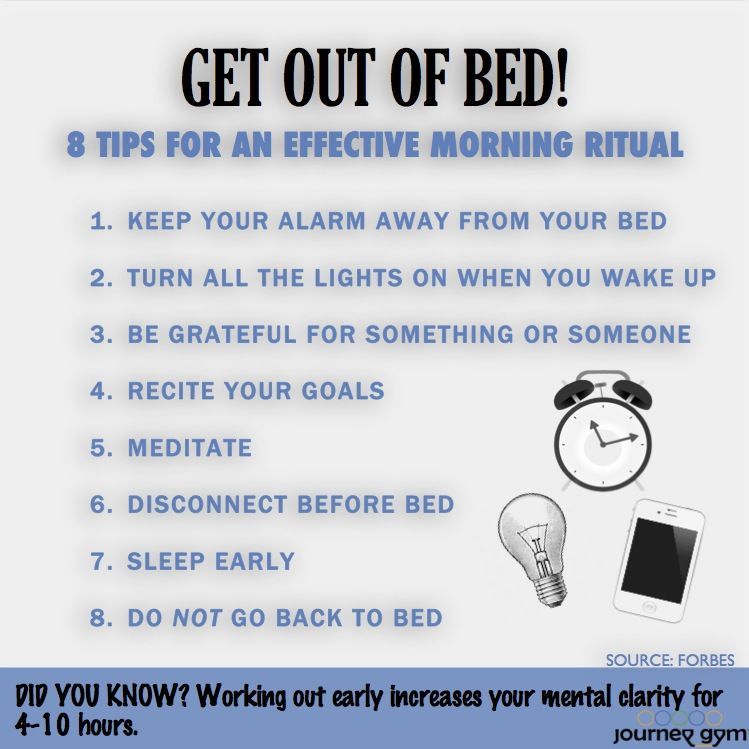 Again, that doesn’t mean becoming a morning person overnight. Rather, parents should give themselves enough time to have the presence of a morning person by the time the wake up their child.
Again, that doesn’t mean becoming a morning person overnight. Rather, parents should give themselves enough time to have the presence of a morning person by the time the wake up their child.
“They will feed off of you,” Lesack says. “When you’re present with your child, be present. Help and focus as much as you can.”
This article was originally published on
How to Wake Up Kids in the Morning
The alarm goes off and the morning battle begins: you knock on your child’s bedroom door to wake him, but you have to go back time and again to make sure he’s actually up, your voice rising with each “wake-up call.” As the minutes tick by and he still hasn’t gotten out of bed, you resort to screaming and yelling in his face, and then tear the blankets off the bed.
In desperation, you pull him out of bed by his feet, though you know you won’t be able to do that for many more years. A screaming match ensues, and now your child has missed the bus, so you have to take him to school.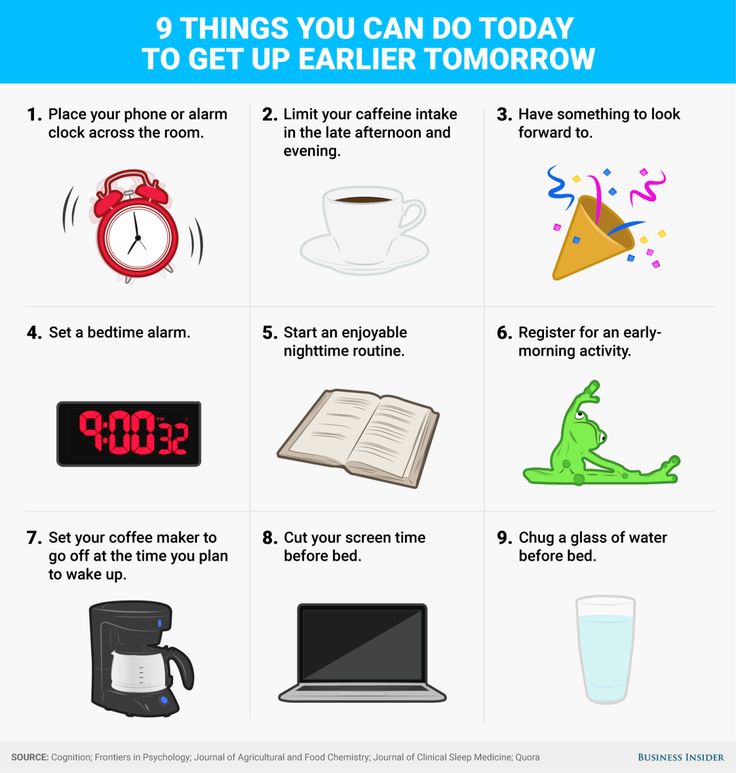 You’ll be late for work again, and you feel your blood pressure rising with every traffic light. Finally, your child slams the door of your car, and you head to work, agitated and upset, sure that your boss will make a comment again today about your lateness.
You’ll be late for work again, and you feel your blood pressure rising with every traffic light. Finally, your child slams the door of your car, and you head to work, agitated and upset, sure that your boss will make a comment again today about your lateness.
“As long as you take responsibility for getting your child out of bed, they will let you do it.”
If you find yourself bending over backwards to get your child going in the morning, you’re not alone. During parent coaching sessions, many parents tell me they set their own alarms an hour or more in advance in order to start the process of waking up their child. In many cases, consequences and punishments seem to have no effect.
According to the National Sleep Foundation, teens need an average of nine hours of sleep per night. Biological sleep patterns during adolescence make it difficult for teens to get to sleep before 11 pm, and nearly impossible to wake up in time to catch the bus or make it to homeroom on time.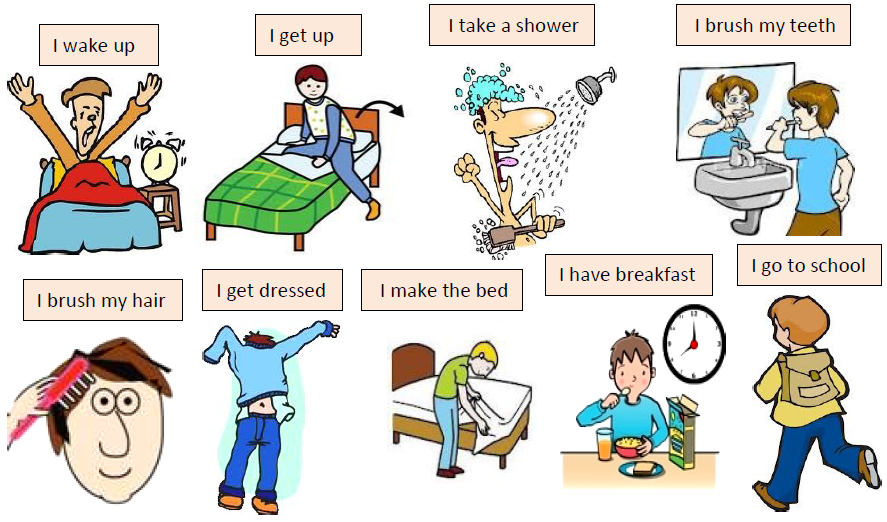 What that means is that when your child has to get up early to get to school, he or she is working against a biological drive to sleep. But just because a kid’s biology doesn’t match up with the demands of the outside world, it doesn’t mean that you have to surrender to the daily insanity of getting your kids up and out of the house.
What that means is that when your child has to get up early to get to school, he or she is working against a biological drive to sleep. But just because a kid’s biology doesn’t match up with the demands of the outside world, it doesn’t mean that you have to surrender to the daily insanity of getting your kids up and out of the house.
The Good News: You Can Stop Working So Hard
The Total Transformation Program tells parents to stop taking responsibility for getting their kids out of bed on time. If you repeatedly bang on your child’s door to get them up, or you drag them out of bed, you are working harder to wake up your child than they are. As James Lehman says, “You are substituting your extra energy and effort for your child’s.” So if you think about it, why should your child get up on their own when you are willing to do it for them? If they know they don’t really have to get up until mom threatens to bring the ice water, why should they get up at the first ring of the alarm? Ten more minutes is ten more minutes, right?
Start by Setting New Ground Rules
In order to get your child to adhere to the morning routine, you need to give them the responsibility for getting up.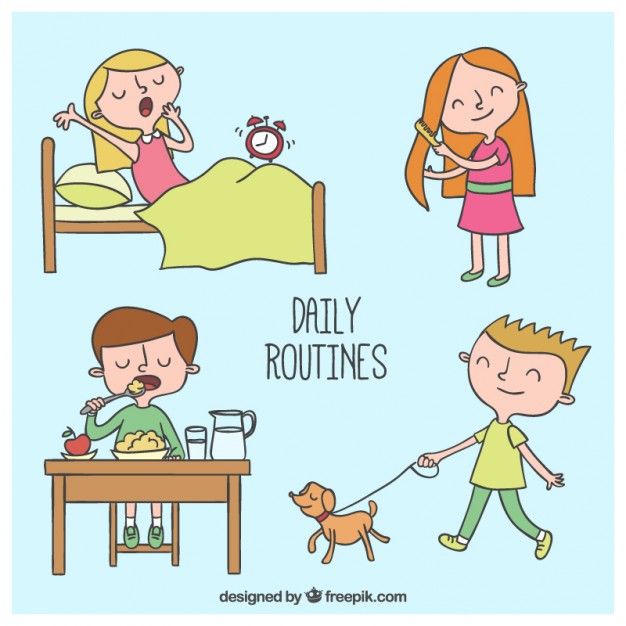 Sit down with your child and have a discussion about getting up in the morning. You might say, “You and I have a hard time in the morning. I am no longer going to be responsible for getting you up on time. I will give you one wake up call, and then it’s up to you. If you miss the bus, I will not drive you to school. You will need to either find another way to get there, or you will need to call your teachers to get your assignments.”
Sit down with your child and have a discussion about getting up in the morning. You might say, “You and I have a hard time in the morning. I am no longer going to be responsible for getting you up on time. I will give you one wake up call, and then it’s up to you. If you miss the bus, I will not drive you to school. You will need to either find another way to get there, or you will need to call your teachers to get your assignments.”
This solution may not work for all families. Your child may be too young to leave at home while you’re at work; walking to school might not be an option. You’ll need to customize the consequences and expectations to your own family situation. If you do have to drive them to school because they overslept, maybe the consequence is that they have to do an hour of chores to make up for the time you lost.
The important thing to realize is that as long as you take responsibility for getting your child out of bed, they will let you do it. It may take a few days for them to get the hint, but once you stop working so hard, they will realize they have to change their behavior, or face certain consequences. A natural consequence for oversleeping and being late to school is having to make up any schoolwork that was missed. You might also check with your school to see what the policy is for repeated tardiness or missed classes. Don’t protect your child from these consequences by making sure they make that bus on time. In order to create less dramatic mornings, you have to let your child experience the consequences of not getting themselves up and out the door.
A natural consequence for oversleeping and being late to school is having to make up any schoolwork that was missed. You might also check with your school to see what the policy is for repeated tardiness or missed classes. Don’t protect your child from these consequences by making sure they make that bus on time. In order to create less dramatic mornings, you have to let your child experience the consequences of not getting themselves up and out the door.
Make Sleep a Priority
The Total Transformation also recommends that parents institute an earlier bedtime. You might tell your child: “You seem to have a hard time getting up in the morning, which tells me you aren’t getting enough sleep. You need to be up by 7 am on school days. As of today, we are moving your bedtime back to 10 pm on school nights. Once you have shown us that you can get up on time for five days in a row, we’d be happy to move your bedtime back to 11 pm.” If your child does not get up on time, simply state: “I know you want a later bedtime.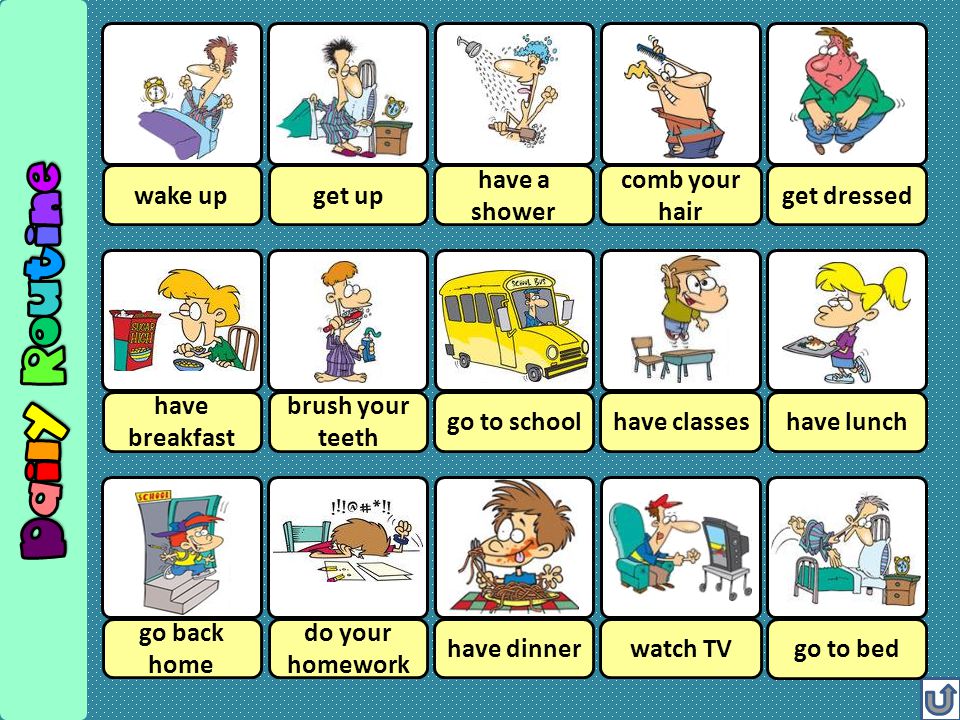 You’ll have to figure out how to get yourself up on time in order to have that privilege.”
You’ll have to figure out how to get yourself up on time in order to have that privilege.”
Because of the biological drives I mentioned earlier, it may be hard for your adolescent to go to sleep before 11 p.m. Going to bed by 10 is going to be a little “uncomfortable” for your child. In time, the discomfort and annoyance of having to get into bed with the lights out and no electronics may motivate him or her to get out of bed on time in the morning. Once your child has gotten up on their own for five days in a row, you can change their bedtime to a later hour. If they begin to oversleep again, change it back to 10 pm until they improve.
Help your Child Problem-Solve their Way to a Better Morning Routine
What if your child doesn’t know how to help themselves get up in the morning? Remember, teens and pre-teens are fighting against a physiological drive that tells them to sleep later than many school start times. In order to change their behavior, they need a plan, not just wishful thinking.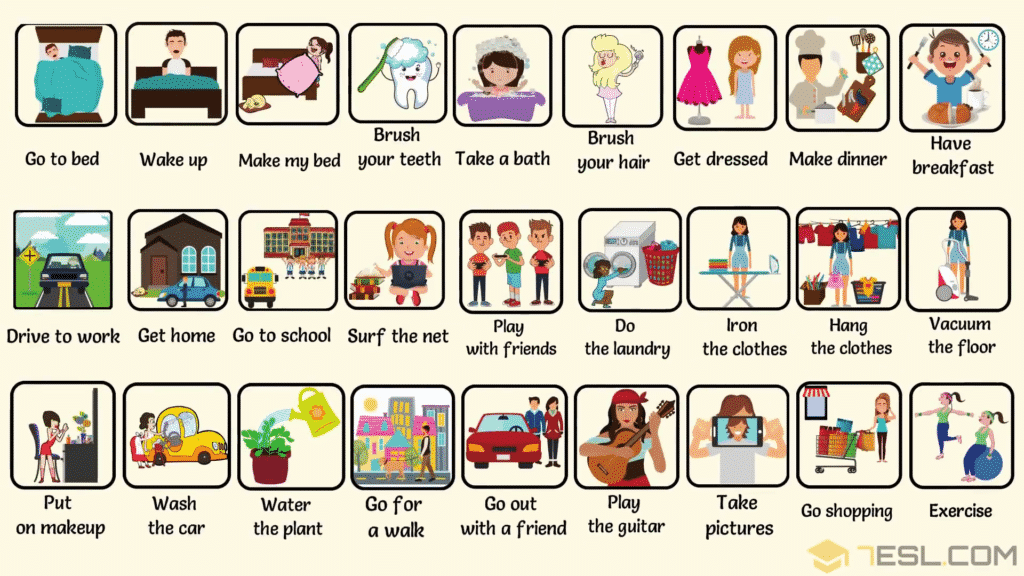
If your child has a hard time getting up, have them come up with a list of things they will do to help themselves get out of bed on time. Changing to an earlier bedtime may help. Putting the alarm clock across the room, instead of next to the bed, may also help. Have your child pack their school lunch, pick out their clothes and organize their backpack the night before so that they don’t have to do it in the morning. Remember to put the responsibility for getting up in the morning on your child. If you do it all for them, they have no reason to do it themselves.
Empowering Parents parent coaching helps with these and other challenges you’re experiencing with your child. Empowering Parents Coaches have helped hundreds of parents customize a plan of action to help your child take responsibility for their morning routine, and we can help you, too. Specialists can also work with you to formulate realistic, appropriate consequences to help enforce the new morning routine. Whatever action you choose, be sure to stick with it.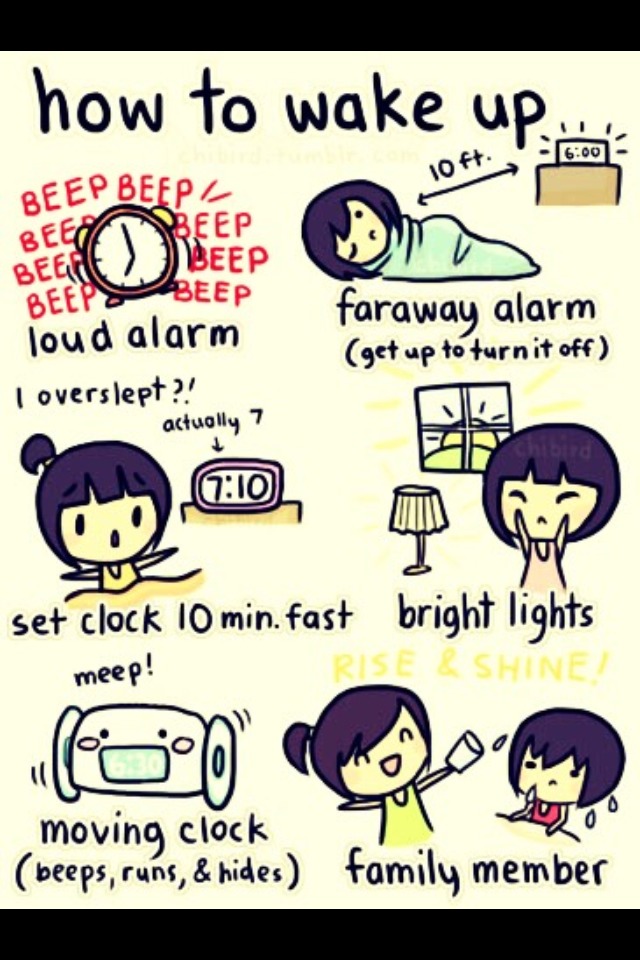 Calmer mornings are within your reach.
Calmer mornings are within your reach.
Related Content:
How to Create a Culture of Accountability in Your Home
Does Your Child Have a Victim Mentality? 4 Steps to Turn It Around
How to wake up a child with benefit and without tantrums?
Usually there is no good morning, because five days a week we have to get up neither light nor dawn. Okay, we are adults, we have been tempered by years early rises to the frantic ringing of the alarm clock. It's a pity for the children who from early childhood experience some discomfort associated with morning awakening. But any, even not very pleasant, activity can be spent with benefit. And so that the morning for your baby was kind and cheerful, and the awakening is soft and pleasant, you need remember a few rules.
It is known that during sleep, a person slows down all the processes occurring in body, as well as in the subcortical centers of the brain. So wake up and immediately begin to perform any work (physical or mental) almost impossible. The body needs some time to "swing". The most important thing is that the very moment of awakening should be gradual and smooth. And in relation to the child, there should not be extremes at all.
The body needs some time to "swing". The most important thing is that the very moment of awakening should be gradual and smooth. And in relation to the child, there should not be extremes at all.
Blankets being torn off, a loud voice, lights turning on suddenly... This can cause increased pressure, increased heart rate, as well as the appearance of nerves. Other extreme, when parents, out of pity for their children, postpone getting up until the last one. But in this case, too, nervousness cannot be avoided, since haste gives rise to panic. As a result, in both cases of such an awakening, your baby spends more the amount of energy for morning preparations, and in kindergarten or school feels lethargic and broken.
So, in order not to fall into the morning extremes associated with the awakening of your child, and not be a plunderer of his vital energy, it is important to remember a few basic rules that will certainly help you.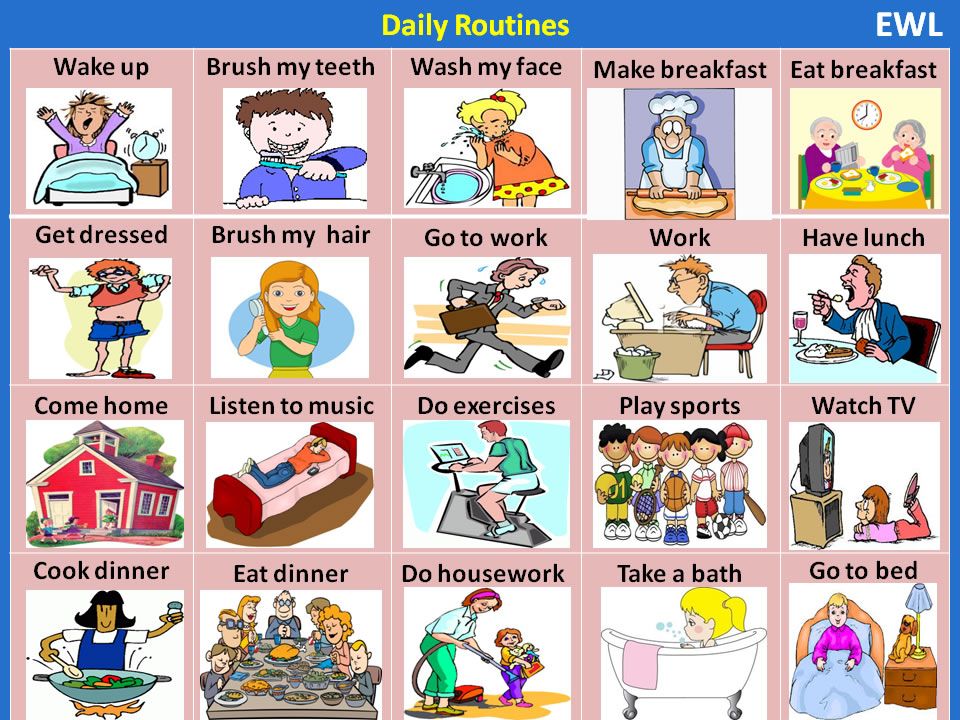
1. To make the morning good, in the evening before going to bed, do not spoil your child's mood. Solve all problems and dissatisfaction in the afternoon. Don't deprive your child of the opportunity to be child. Read to him at night his favorite fairy tale or tell a story from of his childhood. Kiss, pat on the back. And most importantly - do not forget to wish Good night and sweet dreams.
2. Have pleasant awakening ceremonies. Nobody knows better your child than his mother. Before waking the baby, create favorable environment, based on the preferences of the child. Some kids love wake up to the gentle stroking of the mother, others to the music.
3. Take 10-15 minutes to get up in the morning. That's enough time for a child as well as for an adult to wake up, stretch, soak a little in warm bed, and finally get out of bed on your feet. During this period, normal all metabolic processes in the body of your child will come, recover blood circulation, cardiovascular, respiratory systems.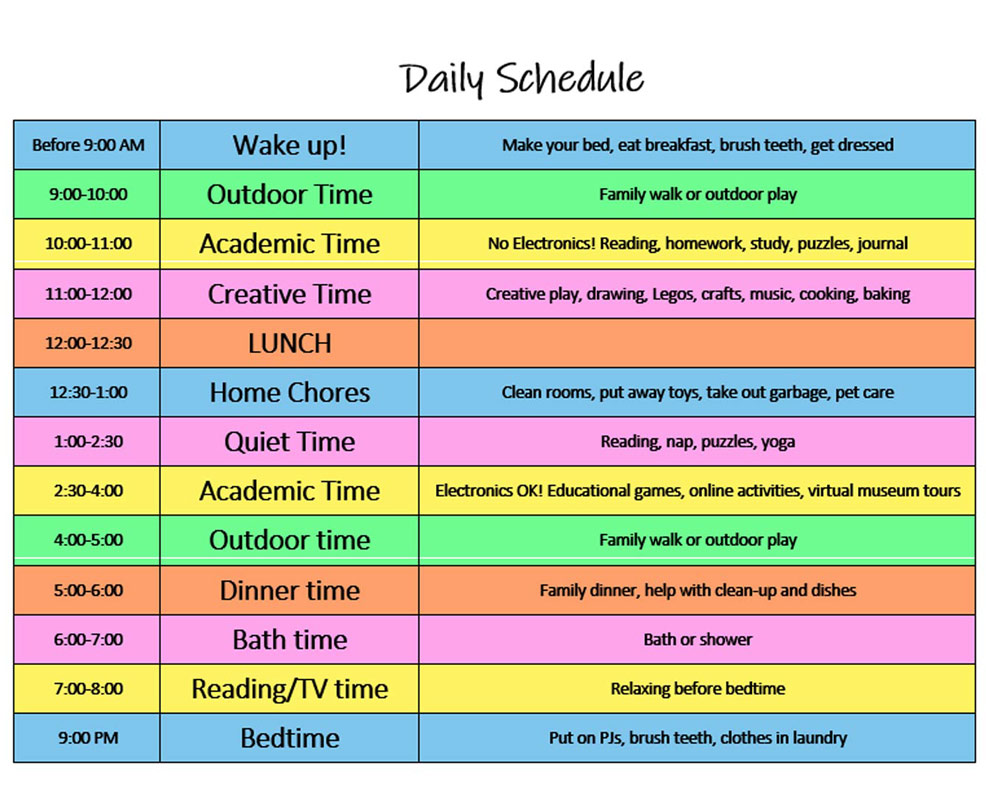
Fantasize, or look for mutually - pleasant options for awakening. Pleasant dreams and good morning to you!
magnit.clan.su
How to wake up a child for kindergarten
04/11/2016
The new daily routine in connection with the beginning of attending kindergarten requires a lot of attention and understanding to the baby from the parents. The most common problem is the reluctance of the child to get up in the morning. This ruins the entire morning schedule of parents who may be late for work, provokes quarrels in the family.
It is usually difficult to wake up a child in the morning, especially in winter, when it is dark in the morning, and it is a pity to wake up a sweetly sleeping baby. And when you wake up, you often encounter whims, stubbornness and scandals.
Strive to ensure that the child always falls asleep in a good mood, so that the sleep is restful. It’s bad if he was punished or scolded for some misconduct before going to bed, and he worries and cannot sleep. It is even worse if the child falls asleep in tears. The child may have nightmares, startle and scream. Such a dream does not bring rest at all.
It is even worse if the child falls asleep in tears. The child may have nightmares, startle and scream. Such a dream does not bring rest at all.
Parents usually pay a lot of attention to sleep, but think little about the special need not only to put the child to bed, but also to wake him up.
I.P. Pavlov imagined that sleep is a process of inhibition of the whole organism, while wakefulness is an active part of life. Between these two states there is an intermediate, "slumbering", a kind of inertia of sleep, when the brain needs time to start working.
How to properly wake up a child in kindergarten. 7 recommendations
Wake up the baby in kindergarten in advance, and not at the last moment.
1. Awakening should be slow and calm. Be as affectionate and gentle as possible during this time.
2. Create a special awakening ritual. It can be: favorite music, audio fairy tale, strokes (you can tickle a little), affectionate words, kisses, softly call the baby by name.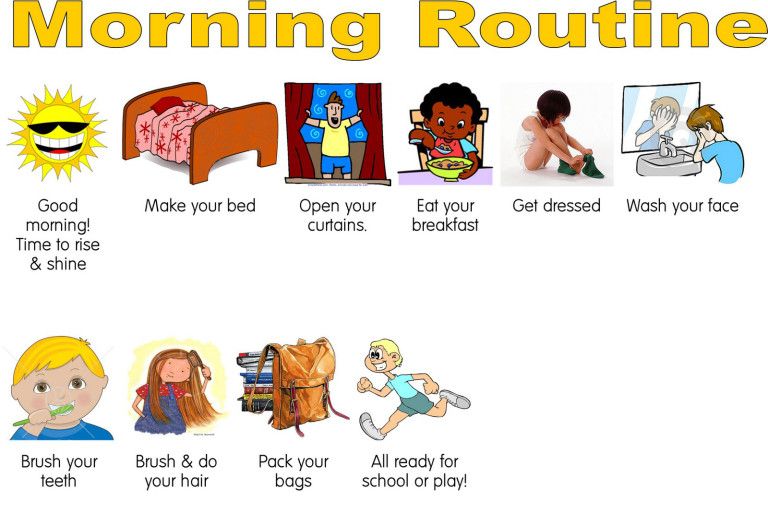 Ask how the child slept and what he dreamed about.
Ask how the child slept and what he dreamed about.
3. Prepare something fragrant for breakfast so that the child will wake up from the smell.
4. Some parents put on in the morning when the baby wakes up some short cartoon that the baby likes, for example "Peppa Pig" and "Luntik". These are short, kind cartoons that help the baby wake up and be in a good mood.
5. You can help the baby to do exercises right in bed, raising and lowering his arms and legs, saying, "Handles wake up, one-two, one-two, legs wake up, one-two, one-two."
6. Massage the baby's toes, feet, earlobes, massage the back. Soak up with him for at least 5 minutes, kiss, sit next to him.
7. Some children are amused when you take a breath and exhale with a noise into their tummy. Funny sounds are obtained, and besides - ticklish. But this is suitable if the baby is already more or less awake.
How not to wake up a child in kindergarten
— wake him up with a sharp commanding voice;
- turn on bright light;
- use loud music, alarm clock to wake up;
- wake up in a hurry and constantly rush the child.












